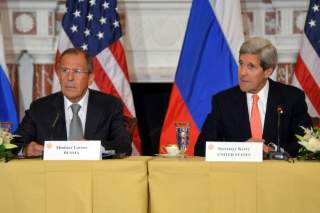Six Mistakes the West Has Made (and Continues to Make) in Ukraine
"Recognizing the indigenous nature of Ukraine’s problems therefore leads directly to a radically different strategy toward Russia—one of cooperation rather than confrontation."
Recognizing the indigenous nature of Ukraine’s current problems, which often go back to promises left unfulfilled by past Ukrainian governments, is therefore a necessary first step toward dealing with them realistically. But it is only the first step. The next is to apply meaningful pressure on the interim government to do what it has thus far refused to do—establish a government of national unity.
Understandably, it is not easy for those who came to power on the wave of revolutionary enthusiasm, to admit that many of their countrymen regard what they did as illegitimate. Fortunately, however, most people in the East and South are still eager to reach an accommodation in the name of national unity. But they feel that such an accommodation should be based on concrete actions taken by Kiev that demonstrate that law and order is actually being restored, and that the interim government is not under the thumb of radical nationalists. Presently, the number one concern of people in the East and South is fear of “rampant banditry;” i.e., falling prey to the violence unleashed in Kiev in January and February, and the lawlessness they are witnessing there today.
A second critical step is making Russian Ukraine’s official second language. This one gesture would reassure the predominantly Russian-speaking regions of the country that their cultural legacy is indeed fully accepted in today’s Ukraine. Such a step has been promised by many presidential candidates since Ukraine’s independence, but has always been opposed by Ukrainian nationalists. That is why its advocates now demand that it be enshrined in the constitution.
A final step is political and economic decentralization, which some identify as federalism. The essential difference between regional autonomy and federalism is that the latter is a compact between regions and the central government stipulated in the constitution. Some types of federalism are very broad, while other types are very narrowly defined. If autonomy is not constitutionally established, its advocates say, any new group of legislators could rescind what was previously granted, as happened with Crimea in 1998.
The interim government, however, cannot accomplish these urgent tasks on its own. It is too strongly beholden to the radical nationalists and pro-revolutionary street forces that brought it to power. Let us not forget that the latter even approved the current government. Since any move toward a true government of national unity will have to be taken against the wishes of one of the interim government’s core constituencies, it will require political cover, and this can only be provided by its major supporters—the United States and the EU.
Recognizing the indigenous nature of Ukraine’s problems therefore leads directly to a radically different strategy toward Russia—one of cooperation rather than confrontation in the pursuit of a strong and independent Ukraine. Last, but certainly not least, it could put to rest once and for all the calls for a new Cold War.
Nicolai N. Petro, professor of politics at the University of Rhode Island, is currently a Fulbright Research Scholar in Ukraine. The views expressed do not reflect the views of the Fulbright Program or the U.S. Department of State.

